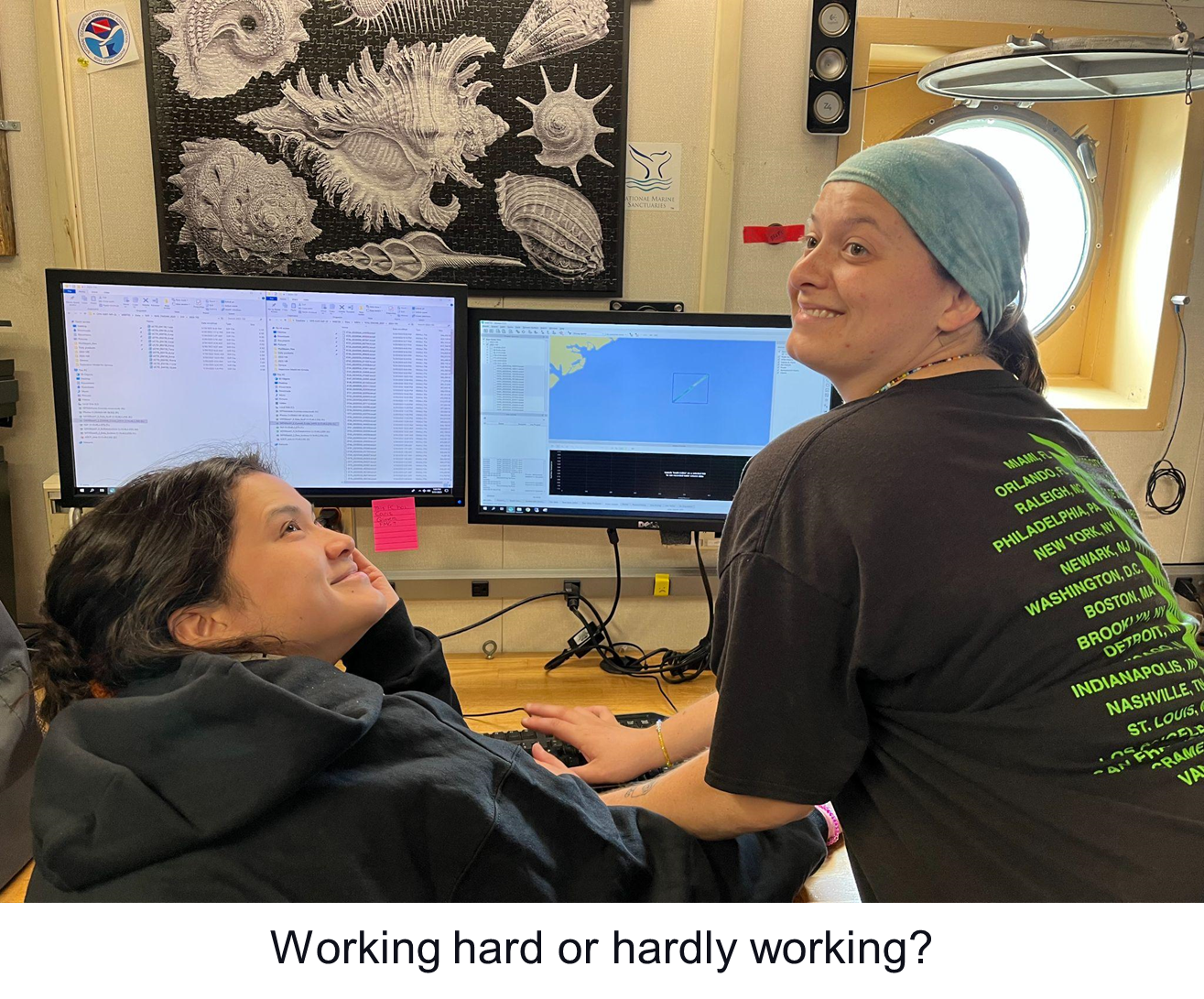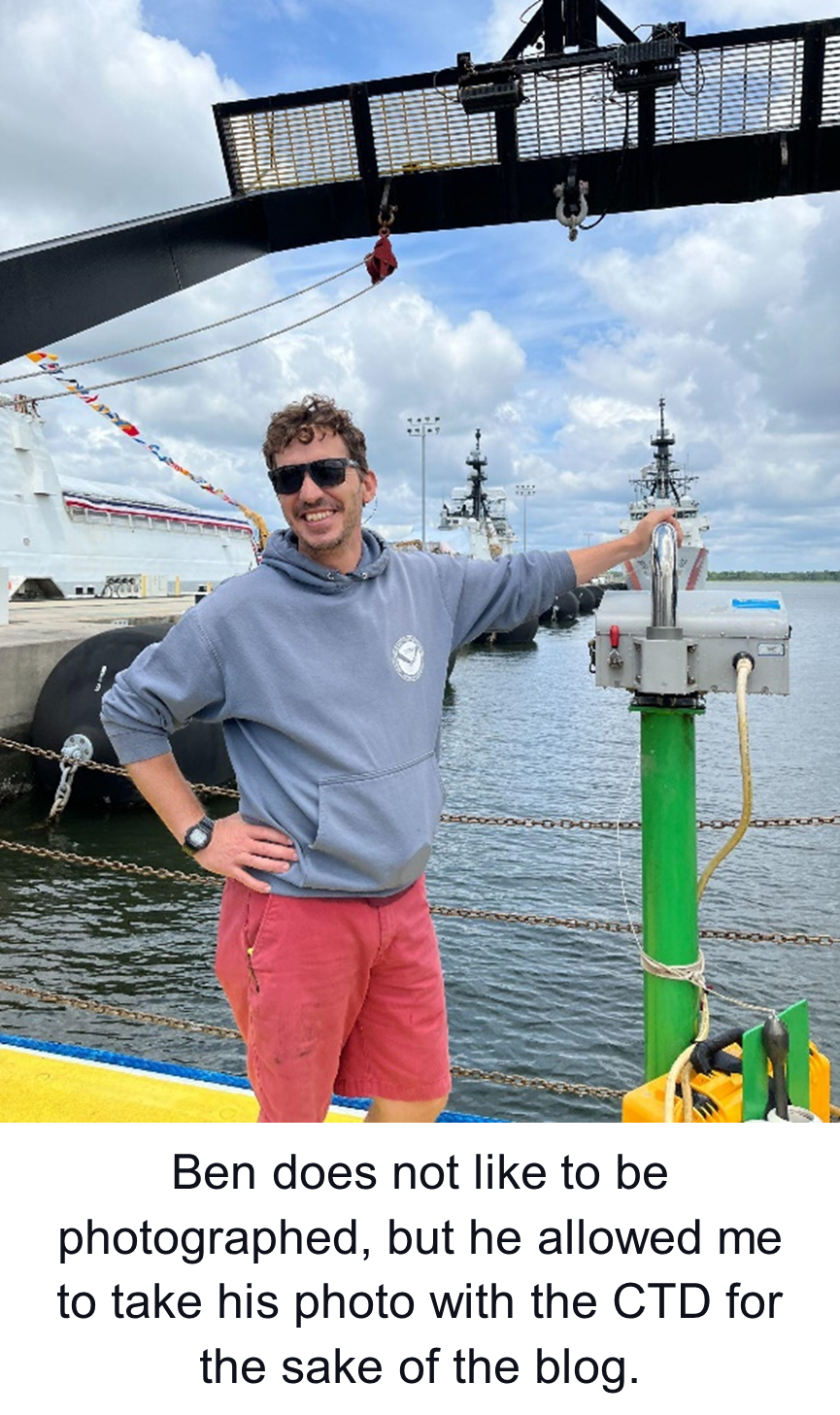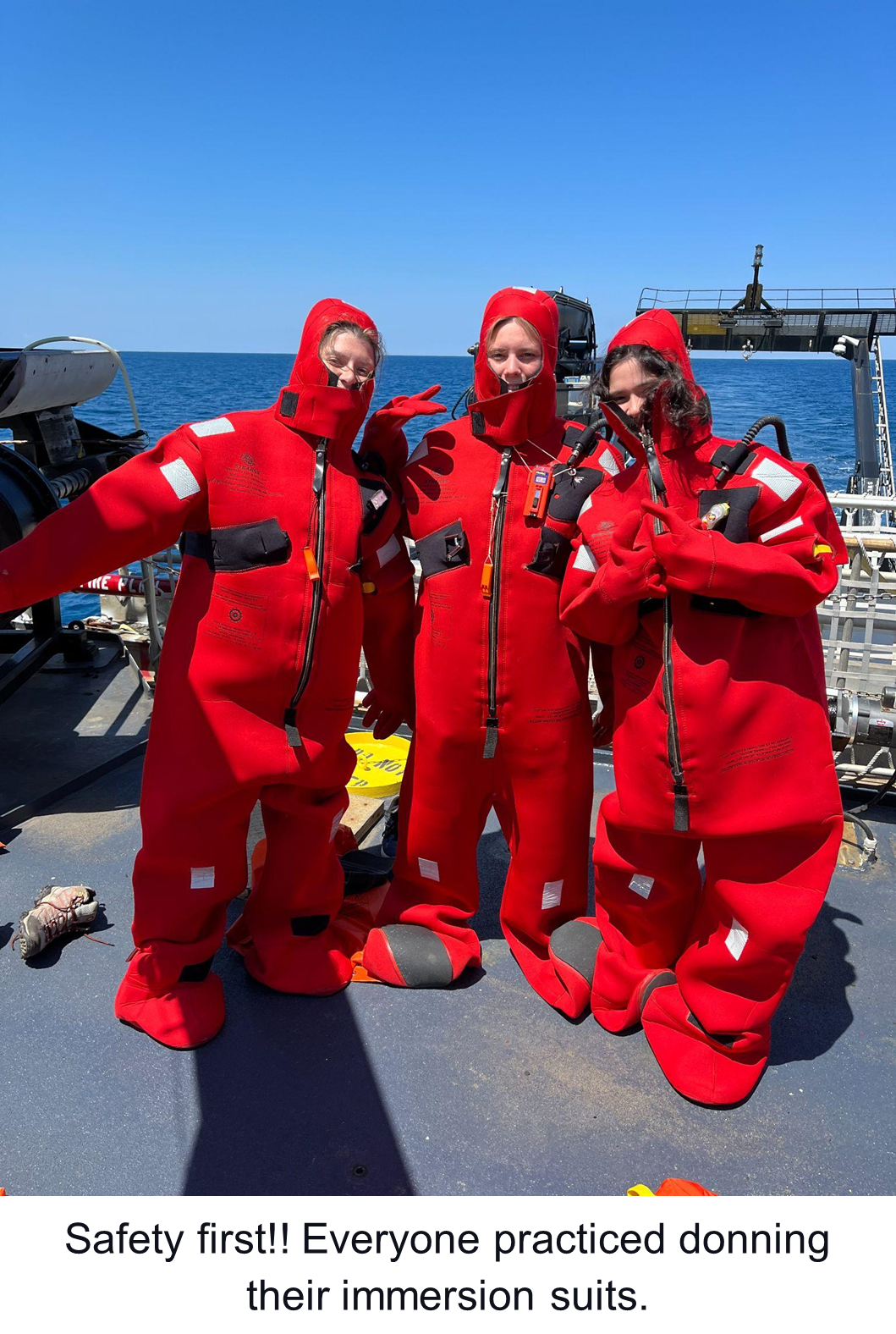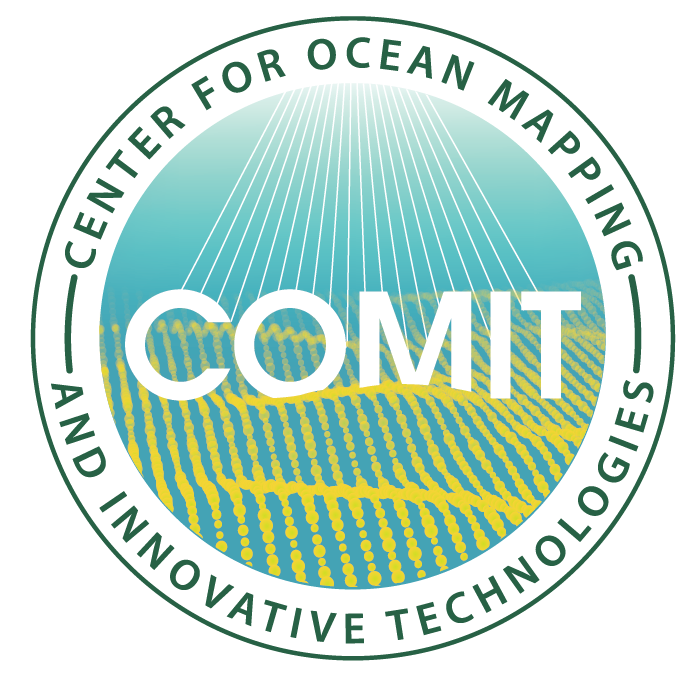Written by: Margaret Hanley (M.S. Student)
Hello there! I’m Margaret, and I am excited to write my first blog post for COMIT. I recently sailed aboard the NOAA ship Nancy Foster, collecting multibeam bathymetry (seafloor depth) data on the Blake Plateau. The Nancy Foster is one of the most operationally diverse ships in the NOAA fleet. Based out of Charleston, South Carolina, the crew aboard the Nancy Foster was kind enough to offer students from the University of South Florida, the College of Charleston, and the University of New Hampshire the opportunity to sail with them as they conducted mapping operations this summer. The Nancy Foster operates on the U.S. Atlantic and Gulf coasts and the Caribbean Sea.

This experience was unique as it provided an opportunity for students with no prior exposure to hydrographic surveys the chance to go to sea. The hydrographic scientists on board not only taught the basics of CARIS HIPS & SIPS and Qimera (two types of software commonly used to conduct these surveys) but also how to collect data in real-time. I had some prior experience using both types of software and it was rewarding to share some of my experience with both undergraduate students and other members of my graduate school cohort. It was a great opportunity for me to refresh my knowledge and get a better grasp of what being a survey technician entails from people that do it professionally. Since we had several students on board to help make our shifts a little shorter, I got to know some of the survey technicians better during my downtime. Survey techs aboard NOAA vessels are integral in orchestrating the ship’s mapping efforts, so I asked one of them if they would be willing to share more about their job with us.
Ben Barbee is a survey technician who has been working on the NOAA ship Nancy Foster for the last five years. Although soft-spoken at times, he is extremely knowledgeable and was happy to answer some of my questions. Early on while working as an electronics technician, Ben wanted to be more involved in the science aspect of the job. Although his original plan was to become a merchant mariner, he decided to pursue being a survey technician. After exploring the different options available, he turned his attention to NOAA.
“I had heard about the NOAA Corps and knew they ran a fleet of research vessels. So, I started volunteering in the Northeast Fishery Science Systems Ecosystems Monitoring Branch doing groundfish surveys,” he shared.
While volunteering with NOAA, Ben started learning more about what it takes to be a survey technician. He decided that the job was a perfect mix of science and participating in vessel operations – but it took a lot of work to get into. Before being picked up for the Nancy Foster, Ben applied every year between 2011 and 2018. Determined to get the job, he did survey work with fisheries, was a fisheries observer, and was a member of the science parties on three different NOAA ships volunteering and working as a contractor. While he could have continued to contract as a science party member, Ben knew he wanted to be a full-time crew member. “Many aspects of vessel operations really interested me. I wanted to feel involved in everything from cruise planning to being in the shipyard while getting to know the engineers and stewards onboard,” he says.
In 2018, Ben finally achieved his goal and was hired as a crew member aboard the Nancy Foster. In terms of learning what it takes to be a survey technician, most of what Ben learned aboard the ship he credits to Sam Martin, the chief survey tech who has been there three times as long as he has. Ben explained that 90% of how he learned to do his job was on-the-job training, and the rest came from the different trainings and workshops he got sent to. While underway on a project, Sam and Ben trade off on 12-hour shifts conducting science support and data acquisition. Science support generally involves:
● Equipment maintenance setup.
● Integration for the science parties’ specific needs.
● Troubleshooting when things go wrong (which often happens at sea!!).

Some scientists will bring their equipment on board, and it’s Ben and Sam’s job to help them integrate that into the ship’s already extensive setup. Ben shares that survey technicians can act as supervisors when deck operations are conducted. They ensure everyone gets set up correctly and safely, overseeing the processes between the deck department, the science party, and the surveyors. While the deck department runs and operates the equipment, the survey technicians stand nearby and give instructions to make sure everything is safe. When docked, the survey technicians do maintenance, attend additional trainings, and set up for the upcoming cruises.
When asked to share the craziest thing he’s ever witnessed at sea, Ben points to sailing in the Bearing Sea, “We lost power and propulsion in a storm in the middle of the night. It was a little frightening, but it turned out fine in the end.” Ben admits the bad weather can be the worst part of his job. On the flip side, he excitedly shares the best part of his job is “doing science at sea! That’s great.”
The last thing we discussed was his advice for those who also want to be survey technicians – he says “there are people in this position who are really good at it, and they are able to be good because they have a broad range of skills not necessarily directed at this job. What has helped me the most is the hands-on technical problem-solving skills I have. From plumbing to electronics, I have a broad enough range of experience in various technical areas to riddle my way through most things. Focusing on improving your troubleshooting skills will also take you very far. Aside from that, the biggest thing is being able to get along with many different people.”
My time aboard the NOAA ship Nancy Foster and my interview with Ben Barbee have deepened my appreciation for the role of survey technicians and the fascinating work they do to support scientific research at sea. I eagerly look forward to future opportunities to work alongside NOAA and further my learning from their highly regarded team of professionals.


Recent Comments